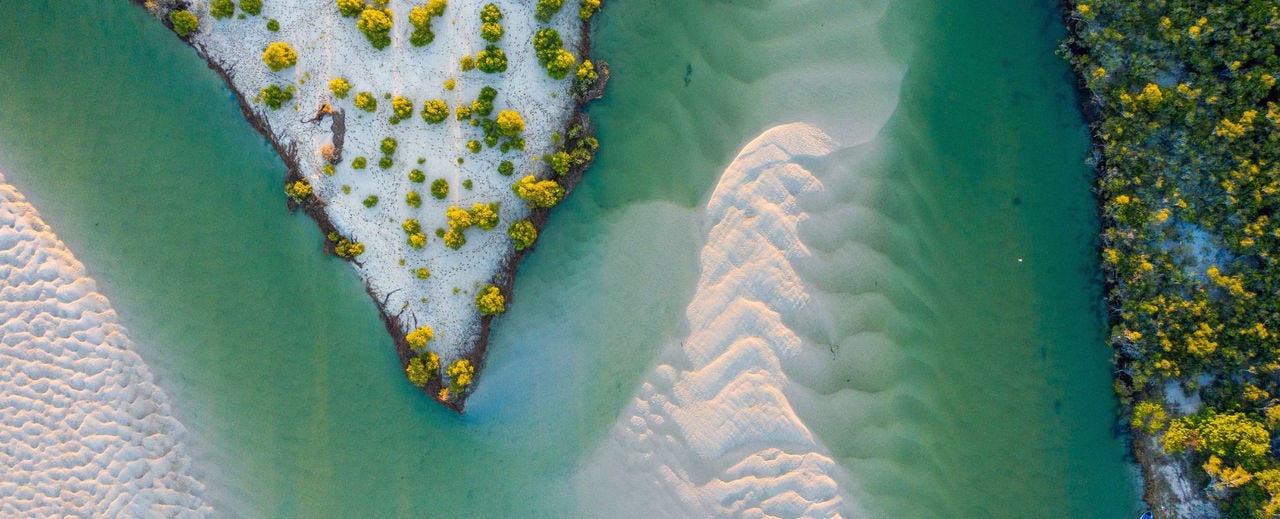Sustainable fishing and carbon neutrality win customers worldwide
Austral Fisheries is a fast-growing seafood company based in Perth, Western Australia. The company is committed to sustainability, traceability and carbon neutrality.
All of the Australian toothfish and prawn fisheries that it operates are certified ‘sustainable’ by the London-based Marine Stewardship Council. Austral Fisheries’ brands give consumers full catch-to-table traceability, via a QR code. The company has also planted over 3 million trees to offset carbon emissions. Its commitment to sustainable principles has created powerful brand equity in overseas markets, including the US and China. The company now exports to 20 countries.
Sustainable fishing and tangible carbon offsets
Australia’s premier integrated fishing company was founded over 50 years ago. The Chief Executive, David Carter, joined as a science graduate in the 1970s. He was a key figure in helping reduce overfishing in Northern Prawn Fishery in the 1980s.
‘We are privileged to be the custodians of some of Australia’s most extraordinary fisheries resources,’ says Carter. ‘Developing a deep understanding of these fisheries is at the very heart of our business.’
Austral Fisheries’ 18 fishing vessels sail in all waters. Down in rough, southern seas, they catch the prized Patagonian Toothfish. This species sells for premium prices around the world. In tropical northern waters, the company’s vessels catch millions of prawns every year.
In 2006, Austral Fisheries’ Icefish fishery was Australia’s first finfish fishery to be ‘Certified Sustainable’ by the Marine Stewardship Council. By 2012, the company’s toothfish and prawn fisheries also earned the blue tick. The Council was co-founded by the World Wildlife Fund (WWF).
‘This accreditation is the gold standard for wild catch,’ says Dylan Skinns, General Manager, Austral Fisheries. ‘It means all parts of the fishery are audited against global best practice to ensure it really is sustainable. We only take around 8% of the toothfish spawning mass each year.’
In 2016, Austral Fisheries became the first seafood business in the world to gain official ‘carbon neutral’ certification. The company has planted around 300,000 native trees each year to offset all the emissions associated with its operation, from diesel and refrigerant gas on its fishing fleet, to electricity in the office. The trees are all planted in the Yarra Yarra Biodiversity Corridor, a global biodiversity hotspot near Geraldton, 400 km north of Perth.
‘We’ve planted 3 million trees since we started and the tallest are about 6 metres high,’ says Skinns. ‘This isn’t just a theoretical offset program. The wildlife is already returning to the reforested zone, especially birds and kangaroos. We have team meetings up in Yarra Yarra every year to see the difference our carbon offsets make.’
Ocean-to-plate traceability in China
Austral has worked with OpenSC since 2019 to make its seafood fully traceable. OpenSC is a joint venture between WWF (Australia) and consultants, BCG Digital Ventures. The result is a blockchain-powered app that allows purchasers of toothfish and prawns to see where their seafood originates.
‘Our consumers are hungry for information,’ says Skinns. ‘They want the ocean-to-plate story. Now they can scan a QR code and get the latitude and longitude of where the seafood was caught. They can also see where it was processed.’
Dylan says the ability to tell an ocean-to-plate story helps boost exports. He says consumers are willing to pay a premium for seafood with reliable provenance. He also says the QR app helps preserve its brands – including the Glacier 51 brand he created for Patagonian Toothfish.
‘We recently had a counterfeit incident in China,’ says Skinns. ‘We learned that someone was copying our packaging and selling fake Glacier 51. With our new QR code, the app instantly flashes up a message that says: “This is counterfeit”.
‘The traceability tech has really helped us get into supermarkets in China, and we’re also now selling via Alibaba in China. It means we can connect directly to our customers.’

Australia’s booming seafood exports
Austral Fisheries has expanded exports from 5 countries to around 20 in just a decade. Sustainability has played a major role in this expansion.
‘Most of our exports were commodity sales a decade ago,’ says Skinns. ‘However, our sustainability and carbon-neutral certifications have opened up a lot more markets. Now we sell to organic supermarket chain, Whole Foods in the US. That’s proved a good market for us.
‘Going down the sustainability route helps us align with overseas customers. Traceability and being carbon neutral are part of our brand. It means we’re not just selling a commodity. We used to turn over around A$30 million in export markets. Now it’s A$120 million.’
Austrade helps Austral find new markets
Austrade advisors contacted Austral Fisheries during the pandemic in 2021. The immediate purpose was to help the company during exceptionally challenging times. Support is now ongoing. Austrade has helped Austral Fisheries expand into Fiji and India.
‘Austrade has been exceptional in terms of finding niche export opportunities,’ says Skinns. ‘Their advisors do the legwork in new markets. In Fiji, Austrade helped identify an importer-distributor for us after a trade show. They helped us into the luxury hotel market and that’s been great for us.’
‘The Australia-UK Free Trade Agreement is also opening opportunities. We have just done a deal with the Australia-themed Daisy Green chain of restaurants in the UK. Austrade has been fantastic and helped with that too. Our first shipment of banana prawns leaves next week.’
Video: SBS Small Business Secrets - Austral Fisheries
In 2021, Austrade partnered with SBS to highlight Australian agribusiness exporters finding success in their diversification strategies.
